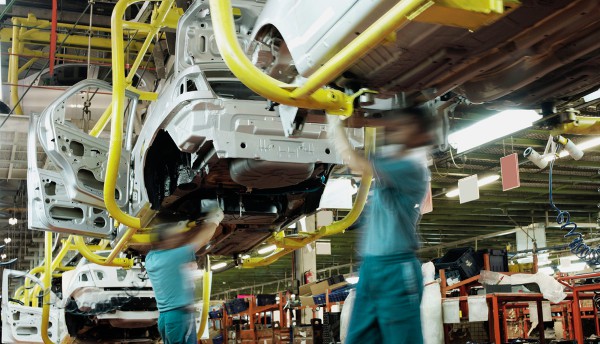
UK-based car manufacturers are keen to source an extra £3bn worth of parts from British suppliers over the next few years. But the question of how quickly a localised supply base can be built could potentially put the brakes on potential investment plans.
The UK currently has a chronically underdeveloped supply base compared with its European counterparts. Currently, around 30% of the parts in a typical UK-built car are sourced from UK suppliers. In Germany it’s closer to 60%. Longer-term targets include adding 15,000 jobs in the next three years – twice the addition in the past three years – and ramping up new investment projects by 20% to more than 180.
The issue comes at a time where the United Kingdom is bucking the trend of low European growth with its own burgeoning production sites for Jaguar-Land Rover, Nissan, Toyota and Ford. IHS Automotive forecasts the UK production will reach 1.53m vehicles in 2013, compared with just over a million in 2009.
However the localised supply base in the region is still underdeveloped thanks to small and medium enterprises being unable to gain credit for basic but expensive items like tooling. Even for larger suppliers, these structurally related costs needed to increase production push down operating profit, increasing risk. The considerable fluctuations mean that if revenues fail to meet expectations in periods of high investment, tight margins for profitability could turn into losses.
The British government is eager to capitalise on the growth in the automotive sector, especially when set against the backdrop of a withering European market. This year has already seen a deal for a £1bn investment for a centre to promote engine research. Britain’s automotive industry has benefited from close state attention in recent years, part of a strategy to promote manufacturing and wean the economy off a reliance on financial services.
However there are obstacles. Automotive suppliers in Britain have suffered through a lack of financial support that rivals countries like Germany enjoy, and an acute skills shortage is cited by many as a growth constraint.
But while funding is starting to flow back as confidence returns, the issue of a skills gap in the UK takes longer to solve. Bentley chief executive, Dr Wolfgang Schreiber, said that the government's efforts to boost the “simple supply chain” manufacturing and engineering would help the whole economy. Speaking in the Daily Telegraph, he said “We need to focus on these less sophisticated areas, like making basic metal parts, sealants, rubber parts. It may sound too simple but it’s a critical issue.” He added: “The supply chain here in the UK is not robust enough for the future. We definitely need to work on it.”
He called for specialist colleges to train workers in areas such as “mechantronics”, the mix of engineering and electronics. “So many parts have wires attached now, chassis parts, powertrain parts, electric parts – and they are not really available here in the UK,” he said.
“We need to build that know-how here. It would be best to build dedicated colleges focusing on this. It would take time but it would be money well spent and it would create a sustainable supply chain.”








